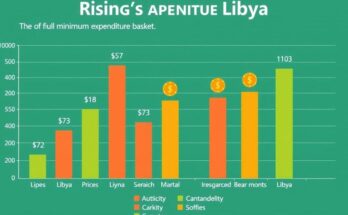President Javier Milei faced backlash after endorsing a cryptocurrency token, ‘$LIBRA’, which quickly fell in value, raising concerns of a scam. Experts criticized his actions, suggesting involvement in a potential fraudulent scheme. Despite confirming the initiative’s legitimacy, Milei’s endorsement has sparked legal and political inquiries, reflecting on cryptocurrencies’ risk in the Argentine market.
On Friday evening, President Javier Milei stirred controversy by endorsing a cryptocurrency token known as ‘$LIBRA’, which quickly plummeted in value. Crypto analysts raised concerns about the potential for a scam, questioning whether the President fell victim to a ‘rug pull’ scheme or actively promoted one. Just hours after his enthusiastic tweet, $LIBRA’s market cap soared to approximately US$6 billion, akin to that of a significant Argentine bank, before crashing dramatically.
The token purportedly aimed to finance small Argentine businesses and entrepreneurs, but lacking liquidity, its price crumbled from $4,978 to just $0.99159 shortly after Milei’s endorsement. In the wake of this decline, numerous economists and political figures expressed skepticism, suspecting fraudulent intentions behind this digital venture. Critics labeled the asset as potentially fraudulent, drawing parallels to Ponzi schemes.
After the incident, President Milei reasserted to Bloomberg Linea that the initiative is genuine and revolves around “pure private financing.” He emphasized its goal of aiding Argentine entrepreneurs in securing funding while stating that the currency was created in honor of ideals concerning freedom, distancing himself from any personal involvement in the project.
Initial reactions to Milei’s social media proclamation involved speculation that his account had been compromised; however, this was later confirmed as false by Lilia Lemoine, a member of Milei’s political group. The President described the project as vital for Argentina’s economic growth, linking to the official website for further details and investment opportunities.
Amid the backlash, Fernando Cerimedo from Milei’s digital team expressed dismay regarding the announcement, indicating internal discord over the plan. Observers swiftly highlighted potential legal ramifications, including the possibility of a fraud investigation against the President, with former allies vocally criticizing his actions.
Crypto enthusiasts immediately took to social media, warning against the ‘$LIBRA’ token and accusing President Milei of launching a scam. Prominent figures like Javier Smaldone condemned his public endorsement, claiming it facilitated a clear fraudulent attempt in the crypto space, warning that the unusual concentration of token ownership indicated price manipulation risks.
As reports surfaced regarding the distribution of ‘$LIBRA’, specialists noted that a mere two accounts controlled 70% of its total supply— a significant red flag associated with potential scams. The organization behind the Viva La Libertad Project, allegedly targeting funding for small enterprises, remains vague concerning its operational processes and requirements.
This incident is not isolated; Milei previously faced allegations tied to crypto scams during his tenure as a national deputy, notably promoting CoinX, which promised unrealistic returns and is under investigation for fraud. Overall, this latest controversy raises serious questions about the integrity of Milei’s associations and the potential legal ramifications of promoting dubious financial instruments.
In summary, President Javier Milei’s endorsement of the cryptocurrency token ‘$LIBRA’ has triggered significant controversy amidst suspicions of fraud. Following a rapid surge in market value, the token swiftly diminished, raising alarms among economists and the political sphere. Critics have called for investigations into Milei’s motivations, highlighting previous allegations of similar misconduct. This incident could have lasting implications for Milei’s political career and the perception of cryptocurrency in Argentina.
Original Source: batimes.com.ar



